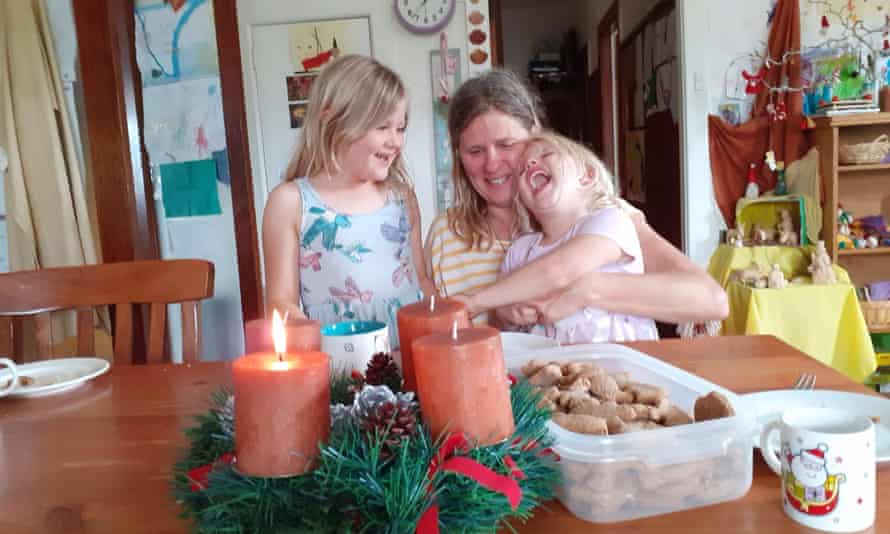
Australians stranded overseas say a decision to slash the number of international passengers allowed to return each week by almost 50 per cent is a “disheartening blow” while others have labelled the move “despicable”.
The prime minister, Scott Morrison, announced on Friday that national cabinet had decided to temporarily halve the number of hotel quarantine spots available each week in NSW, Queensland and Western Australia.
The move comes as authorities work to keep a more infectious variant of Covid-19 – that has emerged in the UK and South Africa – from circulating in Australia. The caps reduction means about 2,500 fewer people will be able to enter the country each week until at least mid-February when national cabinet will review the policy.
Many Australians stranded overseas have endured multiple flight cancellations with only those able to afford business class or first class fares able to return swiftly.
Mona Grebing and her two young children left Australia in July to care for Grebing’s gravely ill mother in Germany. Her mother has since recovered and the family had planned to return to Australia at the end of 2020.
They were bumped from a Qatar flight on 31 December and are currently rebooked for 3 February but Grebing said she now expected to be bumped again.
“I am totally disheartened and don’t even know how to tell my girls such sad news,” she told Guardian Australia. “So far I always felt the government was trying its best to get us all home – so this is obviously a blow in the face.”
Grebing said she feared the cap reduction would make it “near impossible” to get back home. “I knew the risk I was taking when leaving Australia so I can’t complain too much [but] I felt I had no choice at all in the matter,” she said.

Coronavirus breaches from hotel quarantine might be making Australians less sympathetic to those trying to return home, Grebing said. “I’ve got a bit of an inkling that the Australian people will start to get a bit of a fear of Australians overseas given [the virus] comes from overseas. That’s something this policy, and the virus, creates.”
Grebing has registered with Dfat to potentially return on a government repatriation flight but she said “there are currently no more flights scheduled” that she can access.
“And I can’t afford to pay the horrendous prices to return on other [commerical] tickets,” she said, noting some airlines advertised fares for 17,000 euros ($26,000).
In late 2020, some 36,000 Australians were still registered as being stuck overseas, unable to get flights back to Australia due to the caps on hotel quarantine.
Australian commercial film director Tom Noakes endured a number of flight cancellations last year attempting to return from Europe but managed to fly into Sydney in November. His girlfriend, who flew out with an exemption on compassionate grounds, remained overseas with her family in the UK.
She currently has a return flight booked for the beginning of February but Noakes suspects she could be bumped due to the reduction in the number of arrivals allowed into the country
“The pessimist in me feels that’s probably going to get postponed,” he told Guardian Australia. “I just think it’s fucking despicable of a government to put the burden onto other governments overseas at the expense of the well-being of Australians who are trying to get home. I just don’t see how it’s in any way a reasonable reaction.”
Noakes argued the situation was made worse by the number of foreign nationals allowed to fly into Australia for work. Noake said he was aware of an international film crew that visited to make a commercial – taking up quarantine spots in the process – despite contributing little to the economy.
“It’s a little alarming knowing other people are trapped overseas and seeing the priority been given to foreign nationals,” he said. “They’re taking up a fair number of quarantine spots … [and] that’s where the bottleneck is.”
Noakes suggested a New Zealand-style system where people book a place in hotel quarantine before booking their flight could provide greater certainty.
Morrison said on Friday that government-chartered flights to bring back some of the most vulnerable were still operating.
“There is one arriving next week because with chartered flights we have total control of who gets on the plane so we can ensure that it is vulnerable people who get on those flights,” he said. “It’s important that we keep those chartered flights going where they can be done in a safe way.”


